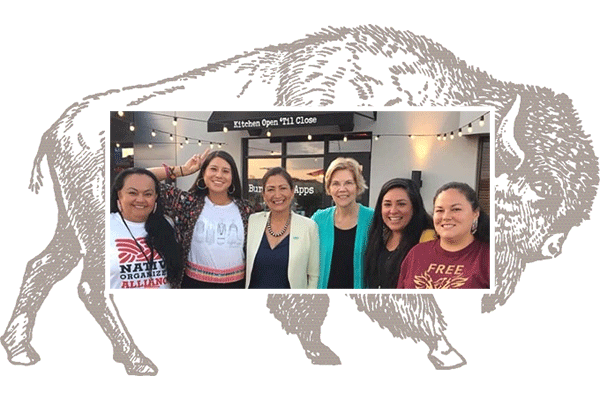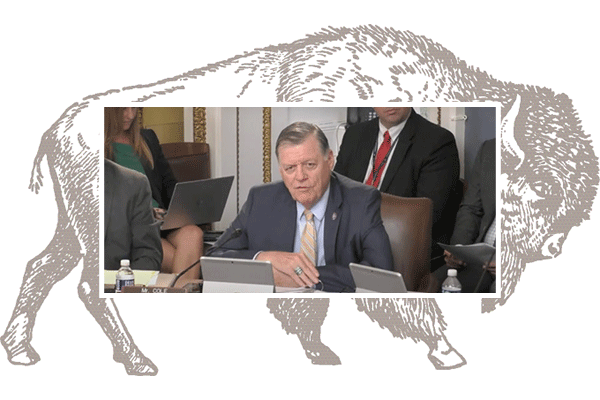WASHINGTON D.C. — Three people with stakes in indigenous voter rights in Oklahoma are looking to the Native American Voting Rights Act, co-introduced by U.S. Rep. Tom Cole (R-OK) to help address voting and election problems in Oklahoma tribes.
“This legislation greatly improves the tools and resources available to help Native Americans exercise their right to vote, which is especially important for those living in rural areas,” Cole said when he introduced the bill to the House alongside U.S. Rep. Sharice Davids (D-KS) on Aug. 13.
Native Organizers Alliance is a volunteer group known for helping to organize and build Indigenous community leaders and groups. One primary effort of NOA has been getting indigenous communities organized for national elections.
The community organization helps Indigenous people in registering to vote and going to the polls to participate in tribal, state and federal elections.
The organization serves several states and tribes across the nation, including Oklahoma. Jennifer Bailey, a member of the Cheyenne and Arapaho tribe, volunteers there when needed.
Bailey said she’s hoping Cole and Davids’ bill will address some of the long-standing concerns she’s had for voting participation in her own tribe.
“A lot of them don’t trust the voting process,” Bailey said. “They feel like it’s built against them. In reality it is the voter suppression that’s a tactic to refrain Native Americans from actually voting and exercising their rights to vote. Voting rights is a trust responsibility by the federal government to the Native Americans. It’s a constitutional right for everybody.”
Victoria Holland, a member of the United Keetoowah Band of Cherokee Indians, said in her tribe only a small portion of eligible voters actually vote.
“I am sure this would also be reflected in national elections,” Holland said. “While there are several reasons this could be, lack of access shouldn’t be one of them.”
Holland is an attorney with Devol and Associates, working with several tribes across Oklahoma. She said she supports Cole’s introduction of the Native American Voting Rights Act because it addresses obstacles which can make voting inaccessible to Indigenous people.
Besides the obvious — lacking trust in the federal government following cultural and physical genocide — there are additional obstacles Bailey said have an impact in Oklahoma tribal voting.
Bailey said she thinks the main thing Oklahoma tribal voters felt was hindering their ability to vote was tribal identification cards are often not an acceptable form of ID to enter polls or register to vote. Many tribal members don’t have a state-issued ID.



